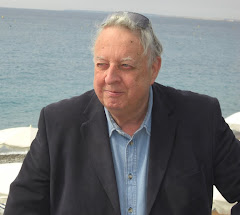I recently received a welcome deluge of CDs by artists of whom I had never heard. Most welcome: too often "famous" artists are the product of wealthy sponsors or backers, be the backers families, individuals, governments, or support groups. It has always been thus, and I am conscious there must have been thousands of really first-class artists out there without backers or sponsors. So welcome to the unknowns who also never had the leg-up given in the past by the (few) international recording and distribution companies.
First up on my player were David Abel and Julie Steinberg. Beethoven's last sonata for violin and piano, Opus 96. The sound is 30% violin and 70% piano. Someone should have told the engineers that the sound of the violin and piano should be balanced. When the piano plays softly, we hear everything clearly; when the violin plays softly, we have to strain our ears to try to make out whether Abel is playing, or not. Abel's violin (when you can hear it) makes a smooth, cooing sound with little evidence of bow changes; a kind of permanent son filé. A sound not to my taste in Beethoven. Then on to George Enescu's third sonata for violin and piano, heavily inflected with Romanian folk music with its strong influences from gypsy music (from North India) and Turkish-North African idioms. Here the balance engineer knew his job a little better and we are in an improved sound world. Abel's sound is more appropriate to Enescu's music here than it was to Beethoven's world.
Onwards with Abel and Steinberg, this time on a CD with Brahms' Op 78 sonata for violin and piano. The bad balance engineer is back, though maybe someone told Abel that, when playing the German classics, always to use a mute, and to play with a soft, cooing sound. Whatever: It didn't sound like Brahms to my ears, and I did not enjoy it. Even after the recent purges of my collection of recorded music, I still have 46 recordings of this sonata. And Abel and Steinberg are certainly not among my favourites. It just ain't Johannes Brahms as we know and love him. I've always had a soft spot for Debussy's one and only sonata for violin and piano, and I enjoyed the duo's playing here more than in Brahms or Beethoven. But I wish Abel would leave his mute at home, and give his bowing arm a little more work to do rather than playing with a constant all-so-smooth sound. This second CD ends with a short selection of Romanian Folk Dances (as arranged initially by Bartok). Abel sounds like a well-scrubbed and freshly manicured Californian gypsy, rather than a folk violinist such as the great Grigoras Dinicu.
The Americans redeem themselves with a 2019 Queen Elisabeth prize winner, Stella Chen, playing with Henry Kramer. An all-Schubert programme, including the lovely D 934 Fantasia, the B minor Rondo D 895, and a couple of short pieces. Chen obviously loves Schubert's music; and it shows in her playing. And no problem with the balance between piano and violin, here. Chen knows how to vary her bow strokes, and to shade her dynamics. First-class.
Then off to Norway, with Kolbjørn Holthe and Tor Aspen Aspaas. On offer is Richard Strauss's early sonata for violin and piano, plus another recording of the Enescu third sonata. The two Norwegians make an excellent duo, and -- for a change -- the balance between the recorded sound of the two instruments is of demonstration class. It is difficult to record a violin playing pianissimo when competing against the sound of a piano; this is particularly true in the Enescu sonata, with many passages in the second movement where the violin plays pianissimo in harmonics high up above the stave. All too often one has to hear these passages from memory (as with the Abel recording above). But not in this recording. And the dramatic ending of the Enescu really makes a major impact with this impressive recorded sound.
Finally, a group that was not unknown to me, but has been overlooked. I have a 2008 recording of the Ebène Quartet playing the string quartets of Debussy, Fauré, and Ravel; hardly the greatest collection of string quartets. But I was given a recent recording by the Ebène, with Antoine Tamestit playing two of Mozart's string quintets (K 515 and K 516). Really excellent performances that bring out the best in all five instruments. This all-French group rivals the old Grumiaux set of the string quintets. The Mozart string quintets (two violins, two violas, one cello) have to be up there with some of the greatest music ever written. I was so impressed with the playing and recording here that I ordered a CD of the Ebène playing two Beethoven quartets.
